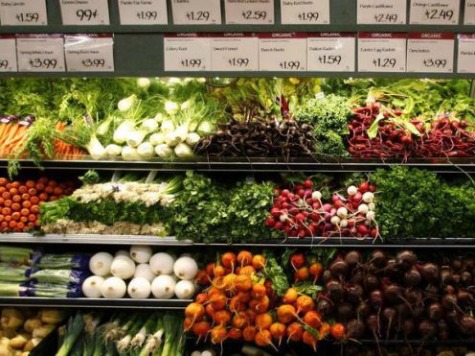Derek Lowe, a doctor of organic chemistry with decades of pharmaceutical research experience, has published a takedown of a BuzzFeed post that went super-viral over the weekend: “Eight Foods That We Eat in The US That Are Banned in Other Countries.”
Lowe goes through author Ashley Perez’s attack on controversial food additives point by point, mercilessly revealing how little research and how many ideologically-driven assumptions went into the post.
This piece really is an education. Not about food, or about chemistry – on the contrary, reading it for those purposes will make you noticeably less intelligent than you were before, and consider that a fair warning. The educational part is in the “What a fool believes” category. Make no mistake: on the evidence of this article, its author is indeed a fool, and has apparently never yet met a claim about chemicals or nutrition that was too idiotic to swallow.
The piece is a great read, if you’re worried about whether it’s too dry, long, or wonkish. Definitely click to read the point-by-point analysis, but for a taste, this passage gives a great overview of the sad paradigm informing Perez:
You cannot assume anything about the effects of a chemical compound based on whether it came from a lovely rainforest orchid or out of a crusty Erlenmeyer flask. The world is not set up that way. Here’s a corollary to this: if I isolate a beneficial chemical compound from some natural source (vitamin C from oranges, for example, although sauerkraut would be a good source, too), that molecule is identical to a copy of it I make in my lab. There is no essence, no vital spirit. A compound is what it is, no matter where it came from.
Another assumption that seems common to this mindset is that when something is poisonous at some concentration, it is therefore poisonous at all concentrations. It has some poisonous character to it that cannot be expunged nor diluted. This, though, is more often false than true. Paracelsus was right: the dose makes the poison. You can illustrate that in both directions: a beneficial substance, taken to excess, can kill you. A poisonous one, taken in very small amounts, can be harmless. And you have cases like selenium, which is simultaneously an essential trace element in the human diet and an inarguable poison. It depends on the dose.
My thinking on BuzzFeed has evolved over the past six months-ish. There’s no conspiracy to create left-wing propaganda; in fact, Benny Johnson–formerly of The Blaze–has been the star attraction of their Politics page since he started there. It seems more that the site trusts its writers enough to give them a large degree of intellectual freedom. Its progressivism comes from being a New York publication filled with young New York progressives who know media more than they know any areas of academic study.
Unfortunately, that leads to publishing posts like these without consulting specialists for a second opinion. Over four million people have read Ashley Perez’s food piece so far–over four million people fed alarmist junk science.

COMMENTS
Please let us know if you're having issues with commenting.